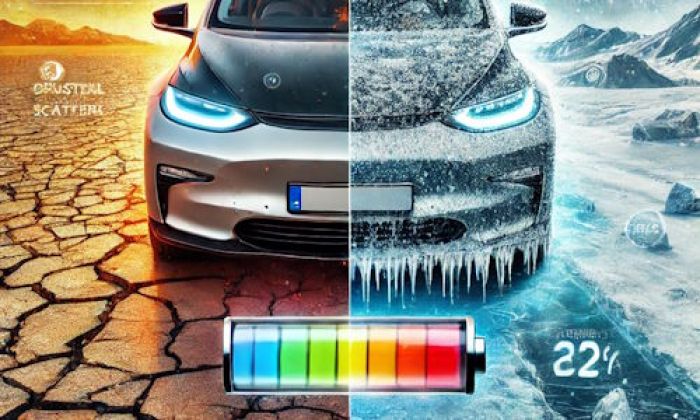On some forums and blogs, you will hear that a P0299 code means you have a faulty turbocharger. This is partly true, but when you read some more and realize that some people report reading the same code after replacing a turbo, you start to realize the P0299 is a tricky code. This trouble code is basically recorded on vehicles equipped with a turbocharger or a supercharger.
P0299 code highlights
- Level of urgency:Medium
- Possible culprits:Turbocharger issues, fallen off or cracked pipes, air leak problems
- Price for repair:$150 - $800
- If neglected:Loss of power, harsh work, poor efficiency
- DIY repairs:Impossible
- Can you drive?Carefully

Understanding the P0299 trouble code in Chevy Malibu
The P0299 trouble code recorded on the Chevy Malibu basically means there is an issue affecting the performance of the turbocharger. The car's ECU takes data from all manner of sensors, which then enable it to control the performance of several systems and parts of the engine. As you may already know, the turbo is a mechanical part and does not come with any sensor save for an actuator.
The ECU will determine the amount of power the engine needs at a specific period or place. The ECU looks for a specific range of boost, and this is where the turbo actuator comes into play. If the ECU determines it requires a high boost and the turbo is unable to provide it, a P0299 trouble code is set.
To know why the P0299 is set, you will need to understand how a turbocharger in the Chevy Malibu works. Inside the turbo is an exhaust turbine that turns at an extremely high frequency when the exhaust blows through it from the exhaust manifold. The turbo turbine will turn in the range of 200,000 RPM when required. The air provides a lot of air to the engine.
To enable this turbine to turn at such crazy RPMs, the shaft connected to the bearing on the other side of the turbo housing will need to be highly lubricated. This means the turbo must have access to high-quality oil for maximum lubrication.
While the exhaust turbine is doing the high RPMs, a wastegate or vent where the exhaust gases would otherwise flow to the exhaust system is closed. On the other hand, when the engine does not require a boost, the wastegate will open, and the exhaust gases rather than spin the turbo turbine, will be emitted from the vehicle. When the engine requires a maximum boost, it means that the wastegate should be tightly shut so as not to allow any air to leak out to the exhaust of the car.
Reasons for the P0299 trouble code and how to fix the problem
1) Lack of proper lubrication
Poor lubrication in the turbo will cause the P0299 trouble code set. As stated above, the exhaust turbine shaft found inside the turbo rotates at a very high speed, which then demands high lubrication. The turbo uses the same oil as the engine, and this being the case, any issue with the oil will affect the performance of the turbo.
Dirty or contaminated oil means the turbo will use it in the lubrication of its moving parts. Such poor-quality oil will make the turbo perform below par and even cause the P0299 code to be recorded. It is for this reason that failing to change the engine oil as required will almost certainly be followed by a troublesome turbo.
The other reason why low lubrication can cause the P0299 trouble code to be set is low oil pressure. When engine oil is under-pressurized, it fails to reach critical parts of the engine, including the turbo. When the turbo is starved of oil, it can cause damage to the moving parts, and this leads to the P0299 being recorded.
How to fix this problem?
The first thing you should note as a driver of a Chevy Malibu is that regular oil change and servicing of the engine is mandatory. Failure to take good care of your vehicle can come at an extremely high cost.
When you see a P0299 trouble code, you should look for a way to solve the issue as soon as possible. If the issue is low oil pressure, a mechanic will certainly help you solve the issue before extensive damage can befall your car.
Continued driving of your car when the turbo is operating using dirty oil or is being starved oil will, in most cases, lead to severe damage to the turbocharger. The damage can further extend to the engine.
2) Air leak
It is critical that whenever the engine calls upon the turbo, it performs its role without fail; otherwise, you may find your car crawling to a stop. The wastegate mentioned earlier ensures that the ECU gets the required range of boost. At times, you may find some cracks on the turbo where the exhaust gases are leaking through.
Under normal circumstances, small cracks on the turbo will not cause the wastegate to close off most of the air since the ECU only demands a range boost and not a specific amount. However, when such leakage is added to a leakage in the positive crankcase ventilation (PCV) system and the throttle pipe, then a P0299 trouble code will definitely be recorded.
How to fix this problem?
While an air leak through the cracks inside the turbo should be of concern, they are not sufficient to make you write off the turbo. You should conduct a thorough boost leak test on the vehicle, where you should confirm that there is no leakage both on the PCV valve and the boost pipe end. Also, confirm that there is no air leak between the turbocharger and the air intake valve to the engine.
3) Debris in the air intake system
There are cases where debris has been found in the air system of the car, and this has prevented the turbo from performing as expected. An obstruction such as a bent pipe can cause the boost to be restricted, which will then lead to a P0299 code being tripped.
How to fix the problem?
When you are faced with this type of problem, you will need to conduct a boost leak test to see if there is any obstruction and where it is. The more effective solution, however, is to physically observe the engine and the airflow system to establish where the problem could be.
4) A faulty turbocharger
When a P0299 trouble code is registered, you will likely think that the turbo is faulty. As we have seen earlier, this could be the case or not. Sometimes, the turbine vanes can break off, or the actuator to the wastegate can malfunction, causing the ECM to register a P0299 code.
Continued driving of your vehicle when a P0299 has already been registered will mostly lead to a damaged turbo even though it was not the one faulty to start with. It is for this reason that you should pay attention to the P0299 code.
How to fix the problem?
Where a turbo has been established to be the one at fault, a replacement of the same is recommended. However, there are turbo kits in the market, which cost much less. In some situations, however, the labor charge, the projected durability of the turbo kit, and its availability can force one to buy a new turbo.
5) Faulty manifold absolute pressure (MAP) sensor
This is a sensor that helps to determine the boost required by the engine. When this sensor fails, a P0299 code is triggered, and you will experience all manner of turbo-related issues. The solution when faced with a MAP sensor issue is to replace it.
What are the symptoms of the P0299 trouble code?
The P0299 trouble code, when it's registered in the DTC, will trigger a check engine light in your Chevy Malibu. However, there are other symptoms to look out for, such as;
- The engine lacks power when accelerating
- There is no change in acceleration even when the turbocharger is engaged.
- A lot of noise coming from the turbocharger
- Check engine light, which can also be accompanied by 'service the engine soon.
Conclusion
In reading this article, you have come to know that the P0299 trouble code is not as simple as some mechanics would like you to believe. This code does not automatically mean that the turbo is faulty and should be replaced.
We have seen several reasons why this code can be triggered and what steps you can take to make it go away. We have also given a few tips on what to do to avoid triggering this code. The most important thing, however, is to know that a P0299 does not automatically mean a turbo replacement.
About the authors
The CarAraC research team is composed of seasoned auto mechanics and automotive industry professionals, including individuals with advanced degrees and certifications in their field. Our team members boast prestigious credentials, reflecting their extensive knowledge and skills. These qualifications include: IMI: Institute of the Motor Industry, ASE-Certified Master Automobile Technicians; Coventry University, Graduate of MA in Automotive Journalism; Politecnico di Torino, Italy, MS Automotive Engineering; Ss. Cyril and Methodius University in Skopje, Mechanical University in Skopje; TOC Automotive College; DHA Suffa University, Department of Mechanical Engineering






Add comment